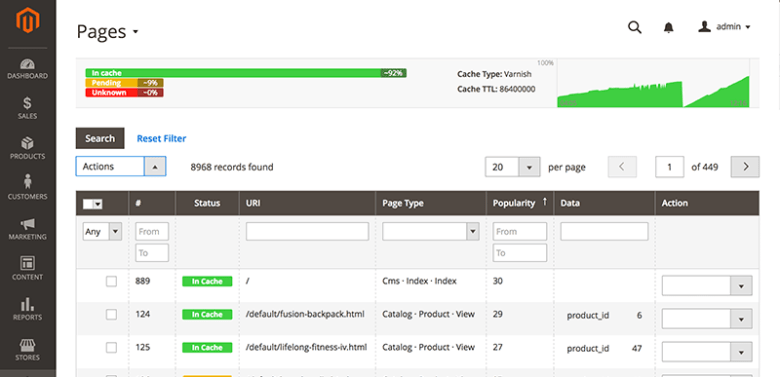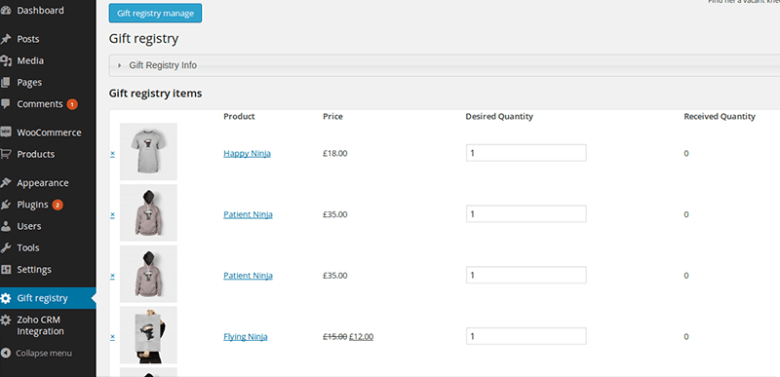E-commerce business owners have many choices when it comes to shopping carts or Ecommerce platforms — almost all of which claim to be easy to deploy and manage. In reality, however, most business owners wind up hiring a designer and a Web developer to help them create the perfect eCommerce site.
The first step when starting out is the eCommerce platform and the number of such platforms and content management systems available has grown over the years. In such a scenario, figuring out which platform to use when you’re looking to build your online store can be a fairly confusing task – especially if you aren’t from a technical/e-commerce background. This post intends to make your research work easier by helping you choose the platform best suited for your needs.
Managed e-commerce platforms vs. Content Management Systems (CMS)
There are two options available for building an e-commerce website – one can either use managed (hosted) e-commerce platforms like Shopify and BigCommerce or open-source Content Management Systems (CMS) like Magento.
As the name indicates, a hosted eCommerce platform is hosted on a server that you will not have access to, while CMS-based websites are self-hosted on server space (such as Bluehost) you will have to purchase. Which option to choose will depend a lot on your specific needs as well as your level of technical involvement. Below is a list of benefits of both which could help you make a choice between the two based on your business’s current requirements:
Benefits of using Hosted eCommerce platforms
1. Lower development and maintenance – There is no coding expertise required, thereby eliminating the need for a development team. Also, the hosting is shared, which lowers the server costs.
2. Better technical support – Most online store creators have a strong tech-support team to assist users with any issues that may arise.
3. Less complex to work with – The back-end for most of these platforms is user-friendly and is built for ease of use keeping in mind users with limited technical knowledge.
Benefits of using a CMS
1. Better functionality – A multitude of plugins, add-ons and themes available for content management systems allow the addition of advanced functionalities that would not be possible in the case of self-hosted platforms.
2. Better customizability – Content management systems allow the freedom of adding/modifying features as well as building a customized design unique to one’s brand. They also allow for constant improvements and enhancements to the user experience on the site, which plays a major role in today’s highly competitive e-commerce space.
3. Can support large stores and sophisticated websites – Content Management Systems, being self-hosted do not have a limit to the number of products or categories allowed, so they can handle much larger stores as well as sophisticated websites.
The server can also be an important aspect of how your e-commerce site is built and we usually use the Linux-based servers being provided by Bluehost or Amazon Web Services. We usually refrain from using Windows-based servers.
You could use this flowchart below (Click on the flowchart to enlarge) to help you arrive at a decision on whether you should go ahead with a hosted e-commerce platform or with a CMS, based on your requirements:
Once you’ve made your choice on going ahead with either of the two platforms, here is a list of the 5 best options you could explore in each niche:
5 Best Content Management Systems
If you’ve decided that a CMS is what will suit your needs best, then below are the 5 best e-commerce CMSs available in the market at the moment. The most important factors that will come into consideration when zeroing in on the CMS would be the availability of extensions, availability of support, functionality, customizability and the cost of development and maintenance. All of them are open source and have free community versions and paid enterprise versions.
Top 100,000 websites using E-commerce technologies – Source: Builtwith.com
1. Magento:
With nearly 21% of the world’s top 100,000 e-commerce sites built on the Magento platform*, it is by far the most popular and one of the best e-commerce CMS being used today. Its biggest advantages are the large number of plugins and extensions available which allow the addition of any new functionality, the ease of availability of experienced developers as well as a lower overall development and maintenance cost.
Pros:
- Robust platform with a high level of functionality and customizability
- A large number of marketplace extensions are available
- Highly active community for assistance with tutorials and troubleshooting options
- More SEO-friendly as compared to most other platforms
- It is highly scalable – no need would arise to upgrade to another platform while scaling up in the future
- Easy Integration with emailing platforms such as Mailchimp so that you can stay in touch with your customers
Cons:
- It requires sufficient server space to operate efficiently at high speeds. Smaller servers may cause speed and other related issues
- Might be too complex for businesses that are too small
2.WooCommerce:
WooCommerce is a WordPress plugin used for building e-commerce websites on the WordPress platform. A large number of WordPress themes have the WooCommerce functionality built-in. The plugin provides almost all the features that are available in the other open-source CMS’ listed here. WooCommerce might work out more user-friendly and cost-effective for smaller businesses as well as for those familiar with WordPress.
Pros:
-
- Easy setup – WordPress requires very little time to get familiar
- Runs on Wordpess – so does not have powerful server requirements
- A good number of lower-priced add-ons and themes are available
- Huge WordPress support community
- Easy Integration with emailing platforms such as Mailchimp so that you can stay in touch with your customers
Cons:
-
- Might not work for mid and large-size businesses or for businesses looking to scale up soon..
3.OsCommerce:
osCommerce is a fairly popular platform as well, with about 11% of the top 100,000 sites built on open-source technologies using osCommerce. Being one of the earliest open-source platforms available, it has a huge support base and a very active forum, though some users find that updates to the platform have not kept up with the times.
Pros:
-
- Easy installation and an easy-to-use interface
- Active forum with a large support base
- A large number of plugins and add-ons allowing the addition of most functionalities
Cons:
-
- Some users find that the software updates and designs have not kept up with the times and remain slightly outdated
4. Drupal Commerce:
Drupal is the second most-used open source website content management system after WordPress and Drupal commerce is the plugin for ecommerce sites built on this platform. Its seamless integration with Drupal makes creating a blog or forum much more convenient than most other ecommerce content management systems.
Pros:
-
- Seamless integration with the Drupal CMS framework gives it an edge over other platforms when it comes to blog integration and content marketing
- Allows for easy implementation of SEO strategy
Cons:
-
- The support community/forum is not as large or active as Magento or osCommerce.
5. Opencart:
Opencart is another open-source CMS for ecommerce. Though it has one of the easiest to use backends, its support systems are not as comprehensive as compared to the other platforms listed.
Pros:
-
- Easy-to-use back-end
- Feature-rich with a large number of plug-ins
- CSS can be edited from within the admin
Cons:
-
- Some users report difficulty in the installation of some themes
- Support documentation is not comprehensive enough
Magento vs Woocommerce vs Drupal Commerce vs Opencart vs osCommerce







